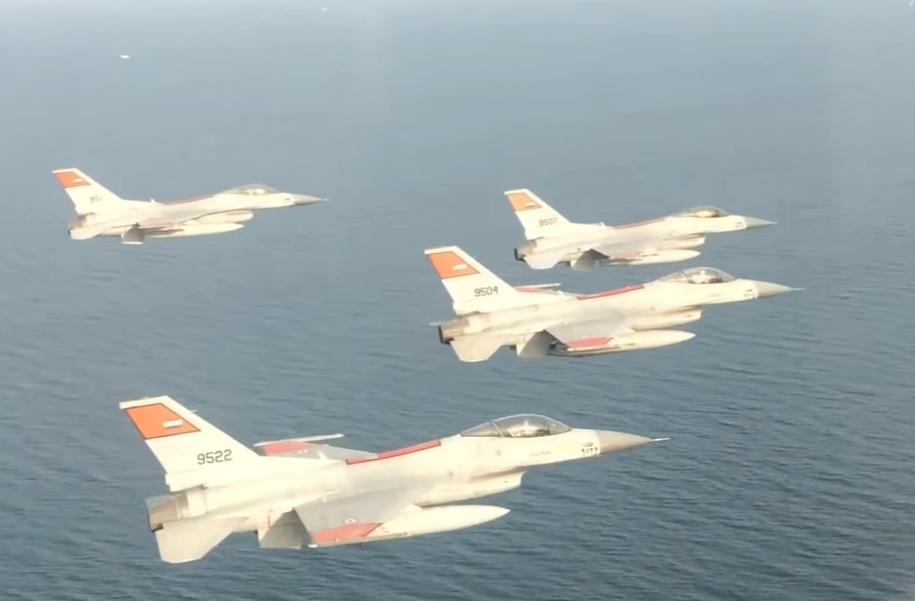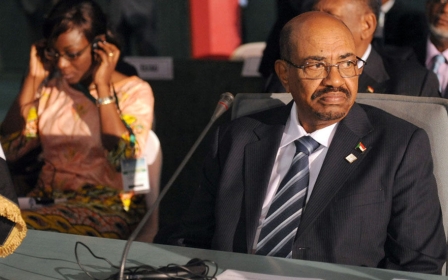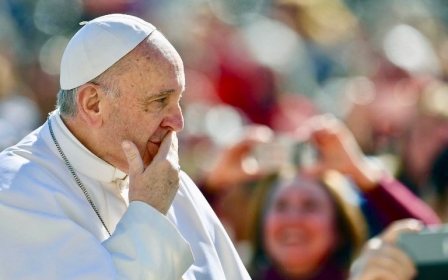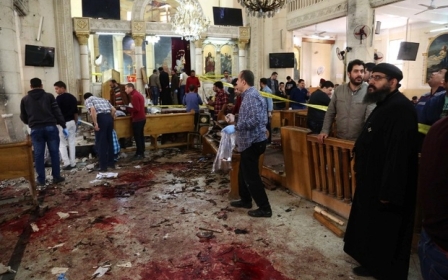Libyan militants condemn Egyptian 'war crimes' as Derna hit again

Libyan militants inside Derna on Monday condemned Egyptian air attacks on the city, saying they had hit civilian rather than military targets and that claims they were responsible for attacks on Coptic Christians in Egypt were baseless.
The Shura Council of Derna said in a statement that Egypt's attacks were "war crimes" and that they had nothing to do with an attack south of Cairo last week which killed 29 Christians. The Islamic State group, which is active in Libya, claimed the attack.
'The council... classifies the aggressors as war criminals'
- Derna Shura Council
The statement came as a third wave of air strikes was launched on Derna on Monday, which followed raids on Friday and Saturday by Egyptian forces and their allies, the Libyan National Army under the control of the renegade general Khalifa Haftar.
Haftar loyalists said Monday's attacks were joint air strikes between Haftar and Egyptian forces.
“The criminal regime inflicted upon the Egyptians launched strikes against our safe and secure city," the council's statement said.
"The criminal Sisi’s airplanes mounted six raids which they alleged to be on military targets. It was claimed that the strikes came in response to the killing of Coptic Christians in Egypt. And the criminal Sisi accused the Shura Council of being behind the attacks."
"The council deplores in the strongest terms the air strikes against civilians in our city, and classifies the aggressors as war criminals.
"And sharing the criminal responsibility are Haftar’s militias - loyalists to this criminal regime. The council considers all those who aided this operation traitors to God and their country.”
A witness told the Reuters news agency that Monday's attacks hit the western entrance to Derna and the other two hit Dahr al-Hamar in the south.
The Islamic State group claimed Friday's attack in Egypt, the latest targeting a Christian minority following two church bombings last month that killed more than 45, also claimed by the group.
Algeria on Sunday called on Egypt to stop its attacks in Libya, saying the campaign "won't solve the security issues that Egypt is facing".
Derna has a history of Islamist militancy, and Islamic State first tried to set up its presence in Libya in 2014 but the militant group was later chased out by local fighters and rival Islamists with strong roots in the city.
Egypt has carried out a number of air strikes on its neighbour since Libya descended into factional fighting in the years following the 2011 civil war that toppled Muammar Gaddafi.
Egypt has been backing eastern commander Haftar, whose Libyan National Army has been fighting Islamist militant groups and other fighters in Benghazi and Derna for more than two years.
Egypt's foreign ministry said it had delivered a letter on Saturday to the United Nations Security Council informing it that the strikes were conducted as an act of legitimate self-defence, according to a ministry statement.
Libyan National Army spokesman Ahmad Messmari said late on Sunday that Haftar's forces were coordinating with Egypt's military in air strikes and the weekend raids targeted ammunition stores and operations camps.
Egypt's president, Abdel Fattah al-Sisi, said on Friday the air raids targeted militants responsible for plotting the attack, and that Egypt would not hesitate to carry out additional strikes inside and outside the country.
On Monday, leaders of the UN-backed Libyan "unity" government in Tripoli denounced the attacks on Derna, saying they had been conducted without coordination with "legitimate authorities", according to the Libya Observer.
The government's presidential council said they rejected any action that violated the sovereignty of Libyan lands, no matter what is seen as justification.
Middle East Eye propose une couverture et une analyse indépendantes et incomparables du Moyen-Orient, de l’Afrique du Nord et d’autres régions du monde. Pour en savoir plus sur la reprise de ce contenu et les frais qui s’appliquent, veuillez remplir ce formulaire [en anglais]. Pour en savoir plus sur MEE, cliquez ici [en anglais].




